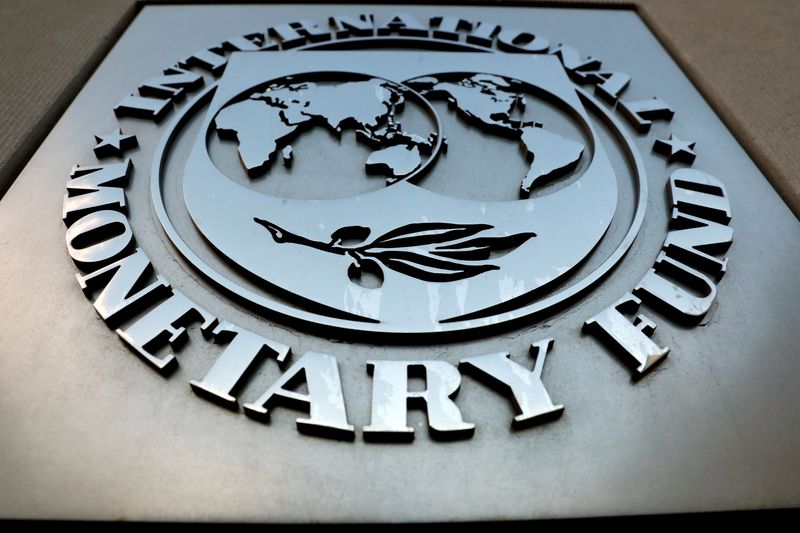By David Lawder
WASHINGTON (Reuters) - Rising geopolitical tensions and the resulting fragmentation of the global economy could increase financial stability risks, reducing cross-border investments, asset prices, payment systems and banks' ability to lend, the International Monetary Fund said on Wednesday.
The IMF has long warned of increased costs, economic friction and GDP output losses associated with the global economy fragmenting into geopolitical blocs, with U.S.-led democracies on one side and China and other autocratic states on another. This can lead to competing technology systems and reduced trade.
But a new IMF working paper highlighted the potential for rising tensions to drive outflows of cross-border capital, including direct investment, from countries, with particularly high risks for developing and emerging market economies.
Such7 stability risks are driven through financial channels, IMF researchers said in the paper, prepared for next week's IMF and World Bank spring meeting as part of the Global Financial Stability Report.
Financial stability is expected to be a major topic at the meetings after recent banking system turmoil, marked by the failures of Silicon Valley Bank and Signature Bank in the U.S. and Switzerland's forced sale of Credit Suisse (SIX:CSGN) to rival UBS.
The paper cited research using the U.S.-China divergence in UN Security Council voting since 2016 as a proxy for rising geopolitical tension between an investing and a recipient country. Such tension reduces cross-border portfolio investment and banking claims by 15% in the recipient, it said.
"Imposition of financial restrictions, increased uncertainty, and cross-border credit and investment outflows triggered by an escalation of tensions could increase banks' debt rollover risks and funding costs," the IMF researchers said in an accompanying blog post.
"It could also drive up interest rates on government bonds, reducing the values of banks' assets and adding to their funding costs."
This, in turn could lead to banks cutting lending, reducing economic growth in the real economy and feeding back into more financial instability, the fund said.
To curb the risk of potentially destabilizing fallout from geopolitical events, the IMF said banking supervisors, regulators and financial institutions should use stress tests and scenario analysis to better understand how rising tensions could be transmitted to the financial system.

It said policy makers should strengthen crisis management frameworks by ensuring cooperative arrangements between national and regional authorities. Countries also should strengthen regional safety nets, through currency swap lines or precautionary credit lines from international financial institutions such as the IMF.
Economies also reliant on external financing should build stronger buffers of international reserves, capital and liquidity buffers at financial institutions, the paper said.